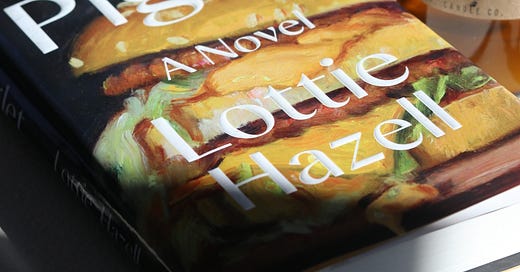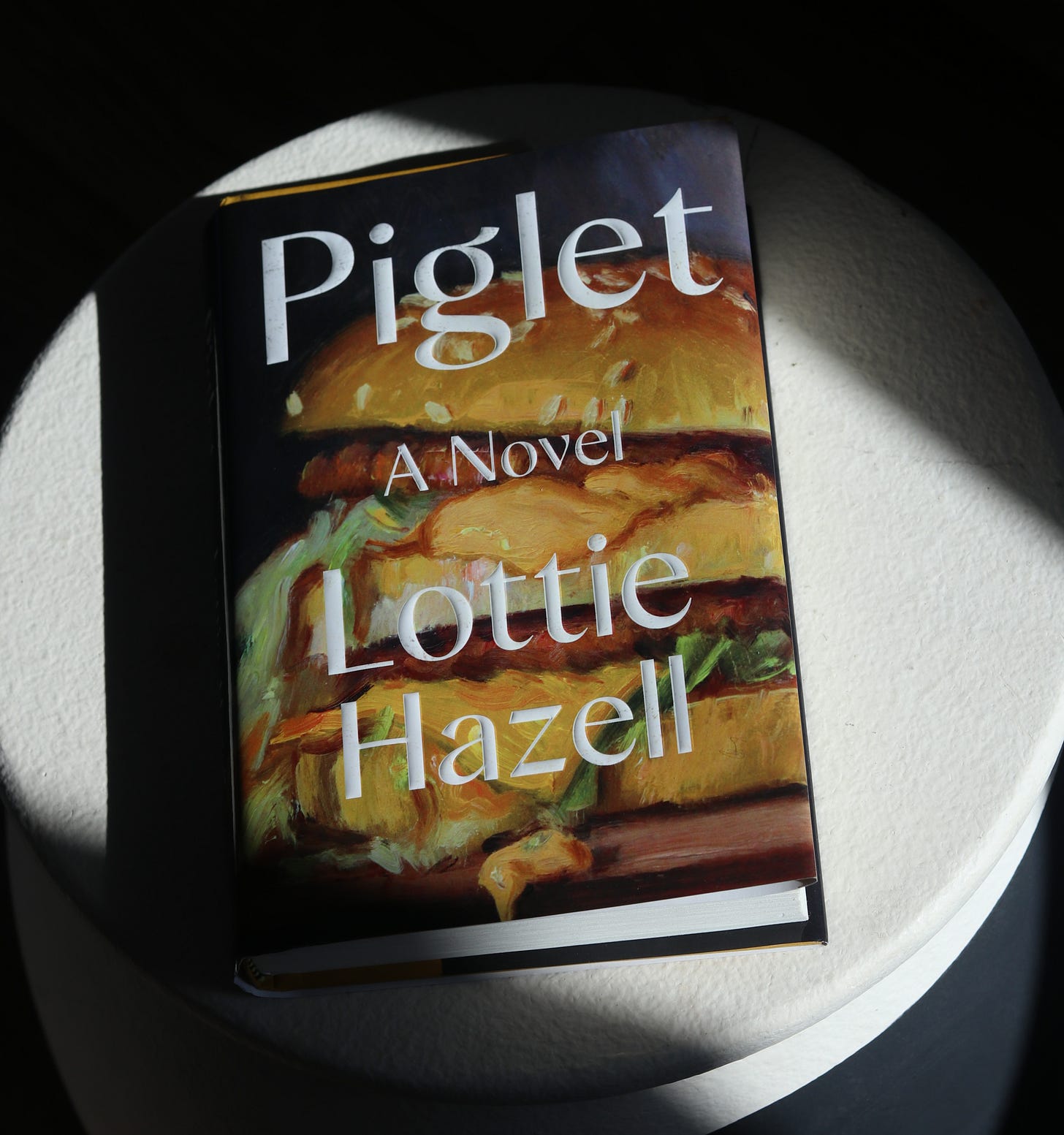Happy Monday! Last week I complained about how much I dislike the current book discourse landscape. Today, I’m putting my money where my mouth is. Every week I’ll be dropping a long-form book review with my thoughts on books I’ve read. First up is Lottie Hazell’s debut novel, Piglet.
When I was young - maybe 6 or 7, my older sister played a prank on me. We were at a chinese buffet, the traditional celebratory meal of all frugal immigrant families, when she leaned over and whispered:
“Listen, we won’t have food for the rest of the week, so we have to eat a TON today.” I soberly looked around the table. The prospect of a week without meals stretched before me - I had never missed a meal in my life, so a week seemed like an eternity! (Reader, please know that my sister is six years older than me, to my seven year old self she was WISE) I proceeded to get a second plate of food, then a third, eating until my stomach hurt and I began to cry. The rest of my family took notice of my tears and asked me what was wrong. I sputtered “we won’t have food this week so I ate a lot and now it HURTS.” I was reassured that I would not miss a meal that week - that I was silly for believing I would.
While I felt better about my upcoming meals after the reassurances, I had to sit through the rest of the dinner with the consequences of my gorging - a distended stomach, uncomfortable to the touch, evidence of my attempts to fuel myself enough to sustain a barren week. Or the concept of a barren week. I was experiencing very real pain in my attempts to soothe a completely manufactured scarcity. I was six, so I won’t beat myself up too much about the fact that bingeing in the face of famine would do….nothing, but this memory is the first thing that came to mind for me as I read Lottie Hazell’s novel, Piglet.
Piglet is a story about the vacuous hunger created by only satisfying other people’s needs, never considering what you yourself want. Piglet’s character is only referred to by her nickname, “lovingly” given to her by her parents during a childhood of what they saw as constant hunger, constant gluttony. Piglet is branded by this lack of satisfaction as a child, and we meet her as an adult, two weeks before her wedding to a man who represents the upward mobility she’s always desired.
When we meet her, Piglet’s hunger has been transformed by her displays of domesticity - tamed into something acceptable to the people around her. Through a job as a cookbook editor and a love for cooking laborious meals, her inability to be satisfied gets masked as discerning taste. She assembles glorious feasts for her family and fiance, tailoring the menu to her assessment of their desires, doing the same with her body and her life.
In her book Simulation and its Discontents, sociologist Sherry Turkle states that studying discontents points us to the places where we are unhappily compliant. With that definition, we can read Piglet’s wedding and everything she does to prepare for it as a monument to her discontent. After a shocking revelation from her fiance, we assume Piglet is going to throw the entire wedding and life that she has built away but instead, we read on as she tries to muscle through her unhappiness, oscillating between feeling as though she’s earned the life she’s built and being left deeply hungry by all the work it takes to sustain that life.
There are places where the book falters - particularly in the long, drawn-out descriptions of Piglet’s food, which err on the side of Bon Appetite-style word salad at times. There are also parts of the book that left me wanting - particularly the moments when the prose tiptoes on surrealism and I wanted the author to fully dive in and turn Piglet the person into a literal animal that her friends and family would have to contend with.
Reading Piglet was a visceral experience - uncomfortable at certain moments. I kept wondering when she would STOP. Stop eating, stop self-sabotaging, stop listening to the voices around her. All in all, Piglet has left me thinking about the nature of hunger, who gets to be hungry, and whether we can ever truly be satisfied by someone else’s dreams for us (spoiler alert: we can’t).
Have you read Piglet? What did you think?





